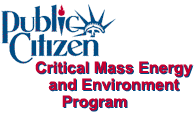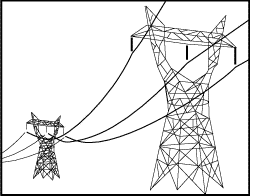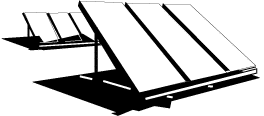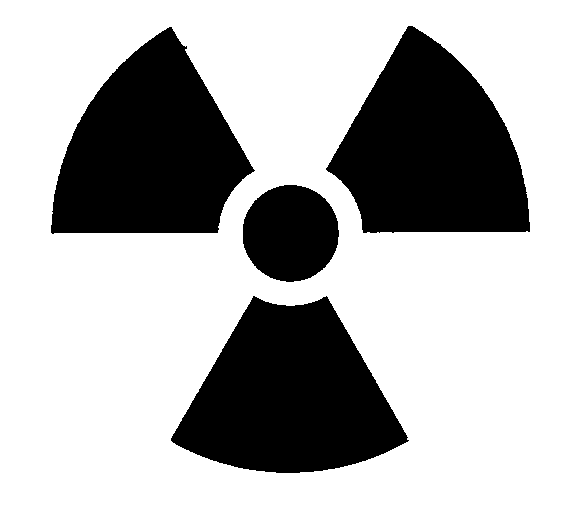
For Immediate Release:
Sept. 11, 2000
DOE Cannot Justify Yucca Mountain
Nuclear Waste
Shipments
Statement of Lisa Gue, Policy Analyst,
Public Citizenís Critical Mass Energy and Environment
Program
As the National Academy of Sciences Board on Radioactive Waste Management meets today to consider the past experience, current issues and future prospects of radioactive waste transportation, Public Citizen raises strong objections to the proposed transportation schemes, which needlessly endanger the public and the environment.
Radioactive waste must be kept isolated from people and the environment. Transporting the waste is inherently dangerous because it elevates the risk of release. It also disperses this risk along transportation routes where hospitals, police and rescue personnel may not be equipped to respond effectively to a radiological emergency.
The current proposal to transport 70,000 metric tons of high-level radioactive waste from weapons facilities and commercial nuclear reactors to a permanent repository at Yucca Mountain, Nev., would initiate a transportation program of unprecedented scale. A recent analysis prepared by Clark County Comprehensive Planning Division in Nevada found that the deadly shipments would have to travel through 734 counties with a total population of 138 million people.
It is unacceptable that the Department of Energy (DOE) is now preparing to finalize the Environmental Impact Statement (EIS) for the Yucca Mountain repository proposal without specifying either the preferred mode of transport (i.e. train or truck) or the precise routes that would be used. Not only does this pre-empt informed participation in the EIS process by affected members of the public, it also excludes consideration of the specific risks to land, water and urban environments that could be contaminated by a radiation leak during transportation.
The DOE, like promoters of the Titanic, want Congress and the public to believe that these concerns are irrelevant because the waste would be shipped in indestructible casks. However, these casks have been tested only through computer simulations. We must insist on additional full-scale physical testing to confirm the validity of the computer models. Furthermore, the parameters of the test requirements should be reviewed and updated to reflect realistic accident conditions.
In addition to accident scenarios, we also have grave concerns about the consequences of routine radiation exposure from Yucca Mountain waste shipments, which would emit 10 millirems per hour from a distance of two meters. Workers and residents along transportation routes would be disproportionately exposed to low-level radiation as a result of the shipments.
Transporting high-level radioactive waste to a Yucca Mountain repository does not solve the nationís nuclear waste problem. In fact, this industry-driven proposal implicitly encourages the continued generation of nuclear waste while transferring the risk to the state of Nevada and communities along transportation routes. We call upon the Board on Radioactive Waste Management to uphold the precautionary principle and the publicís right to protection from the unquantifiable risks associated with transporting high-level radioactive waste.
| Critical Mass
Home Email Critical Mass |
 UTILITY DEREGULATION |
 NUCLEAR POWER & REACTOR SAFETY |
 RENEWABLE ENERGY |
 RADIOACTIVE WASTE POLICY |
|
